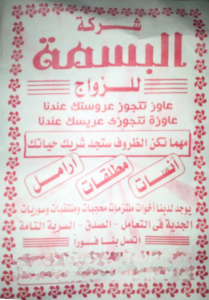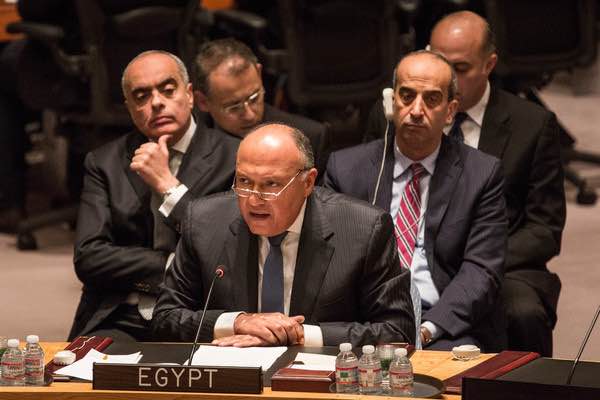
(Photo courtesy of The National Council of Women in Egypt has condemned the trend)
Gamal Eid, director of the Arab Network for Human Rights Information (ANHRI), stated that the marriage of Egyptian males to female Syrian refugees in exchange for money is a form of human trafficking.
The National Council for Women (NCW) sent two letters to Minister of Interior Mohamed Ibrahim and Minister of Justice Ahmed Mekki on Thursday requesting the ministries’ intervention in combatting this phenomenon.
Eid stated that such marriages taking place is a political disaster. “It’s disastrous that female refugees fleeing their warring country would meet such treatment in Egypt,” he said.
In a statement released on Thursday, the NCW cited a memorandum sent last week to President Mohamed Morsi by the International Union for Egyptian Women, calling for immediate intervention to stop such marriages.
The union stated that Syrian women are made available for marriage to Egyptian men in exchange for EGP 500 per wife, adding that such marriages are especially abundant in 6th of October City, 10th of Ramadan City, and New Cairo, as well as the Alexandria, Al-Daqahleya and Al-Gharbeya governorates. In one year 12,000 marriages have taken place, the union claimed.
The phenomenon has expanded to Facebook pages offering Syrian women for marriage. One particular page, “Syrian girls for marriage in Egypt”, links the marriage to Islamic religion and describes them as offering a helping hand to struggling girls and widows.
Another example includes a flyer belonging to a company called Al-Basma. The flyer, reportedly distributed at Nasser mosque in Damanhour, offers “well-mannered, veiled, and Syrian” women for marriage. The company Al-Basma could not be reached for comment.
Eid stated that countries receiving refugees should provide them with protection and sustenance. “If the Egyptian state, alongside other refugee rights commissions, provides Syrian refugees with adequate sustenance, it would protect them from such acts of human trafficking,” he said.
The NCW repeatedly rejected and condemned this phenomenon since Syrian families began flocking to Egypt. The council also described such marriages as a form of human trafficking, adding that it violates human rights and contradicts international conventions.
Article 73 of the constitution bans all forms of oppression, forcible human exploitation, and sex trade. However there is no mention of human trafficking. When discussed by the constituent assembly, most assembly members were against addressing human trafficking. Some members, such as Freedom and Justice Party member Hoda Ghaneya, preferred to take the article banning human trafficking out of the constitution, saying that Egypt doesn’t suffer from human trafficking so it shouldn’t address it in its constitution.
Syrian refugees’ presence in Egypt began surfacing around mid-2012. Most Syrian refugees come to Egypt because they believe it’s their least worst option when weighed against other neighbouring countries.



